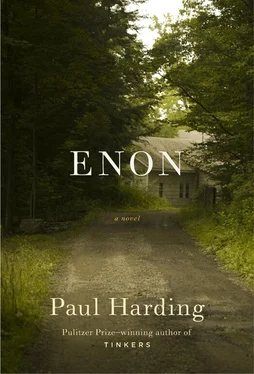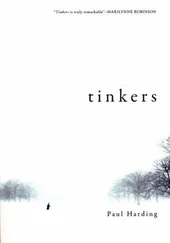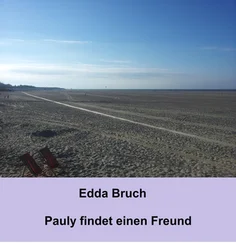Paul Harding - Enon
Здесь есть возможность читать онлайн «Paul Harding - Enon» весь текст электронной книги совершенно бесплатно (целиком полную версию без сокращений). В некоторых случаях можно слушать аудио, скачать через торрент в формате fb2 и присутствует краткое содержание. Жанр: Современная проза, на английском языке. Описание произведения, (предисловие) а так же отзывы посетителей доступны на портале библиотеки ЛибКат.
- Название:Enon
- Автор:
- Жанр:
- Год:неизвестен
- ISBN:нет данных
- Рейтинг книги:3 / 5. Голосов: 1
-
Избранное:Добавить в избранное
- Отзывы:
-
Ваша оценка:
- 60
- 1
- 2
- 3
- 4
- 5
Enon: краткое содержание, описание и аннотация
Предлагаем к чтению аннотацию, описание, краткое содержание или предисловие (зависит от того, что написал сам автор книги «Enon»). Если вы не нашли необходимую информацию о книге — напишите в комментариях, мы постараемся отыскать её.
Powerful, brilliantly written, and deeply moving Paul Harding has, in Enon, written a worthy successor to Tinkers, a debut which John Freeman on NPR called "a masterpiece." Drawn always to the rich landscape of his character's inner lives, here, through the first person narrative of Charlie Crosby (grandson to George Crosby of Tinkers), Harding creates a devastating portrait of a father trying desperately to come to terms with family loss.
Enon — читать онлайн бесплатно полную книгу (весь текст) целиком
Ниже представлен текст книги, разбитый по страницам. Система сохранения места последней прочитанной страницы, позволяет с удобством читать онлайн бесплатно книгу «Enon», без необходимости каждый раз заново искать на чём Вы остановились. Поставьте закладку, и сможете в любой момент перейти на страницу, на которой закончили чтение.
Интервал:
Закладка:
“Never mind; never mind; you’re fine,” I yelled. She turned back toward the spigot. She bent forward and disappeared behind a row of three white stones and stood back up with the plastic milk jug in her hand. When the jug was full, she hauled it down the hill, bending and stepping sideways to keep her balance.
“That was a bit more of an adventure than I thought,” I said. “You okay?”
“Yeah, I’m fine, but I’m soaked ,” she said. She set the jug next to the headstone, dropped onto the apron of grass in front of the plot, and lay on her back.
I sat down next to her and we were quiet, looking up at the maple trees and their new, luminous shawls of foliage, and at the blue sky and the clouds, which were gray with white piping and silhouettes of gold light. Kate tipped her head back far enough to see the headstone behind her. She whispered letters to herself, translating them from upside down, and half-spelled the names on the stone. She stopped reading and looked at the sky again and shivered. Her arms were covered in goose bumps.
“Chilly?” I asked.
“Yeah,” she said. “It’s warmer standing up.”
“You’re right. Let’s get up and water the flowers and go get you changed. Our work here is done.” I pushed myself up, then gave Kate a hand and hoisted her to her feet. She poured the water into the soil around the plants and it rose and broke over the edge of the grass and streamed down away from the plot, beading through the turf and shining like chrome.
I WOKE UP ON a Wednesday afternoon in October, nearly two months after Kate had died and Susan had left, with what sounded like the reverberations of some catastrophic, cosmic organ chord clapping off the walls and rattling the windows and dopplering in the blood of my ears. It took me a full two minutes to remember where I was and who I was and what the circumstances of my life were. Two minutes does not sound long unless you cannot figure out where you are; then it is a terrifying undertow out of which you desperately try to paddle and inside which you cannot figure out what direction is up, and no matter where you try to put your feet, they do not touch the sandy bottom of the upright world, and for all you know you might be upside down, as much as you feel that the surface of the water must be just above your head. When I coordinated my senses, my panic gave way to misery. The living room was littered with empty whiskey bottles and dirty drinking glasses with dirty spoons and forks in them and piles of old newspapers and magazines, books and maps, and dirty clothes. Cigarette butts were piled in pyramids in two glass ashtrays and scattered across the coffee table and stubbed out in the glasses and in the bottles and on plates and even in the potting soil around the houseplants. I groaned and pounded the couch in frustration. Its cushions were filthy from my having slept on them for weeks, and stained and slick from having spilled beer and whiskey when I passed out.
I wobbled to the kitchen. The old stove, spattered with food, with its rusty burner grates and greasy, dented blue teakettle and greasy hood that had dust gunked up on top of it, seemed a concise sign of my devastation. I yanked the kettle off the stovetop, opened a kitchen window, leaned out, and dropped it into the weed-shot flower bed below, but carefully, as if I were placing it there to great purpose, so as not to appear erratic to anyone who happened to be standing in the rank backyard. The cabinets were all shellacked in grease and dust, too, and had stains running down the doors. What seemed like every dish and glass and mug and cup and utensil was dirty and piled up in the sink and on the surrounding counters.
I decided to clean the house. Unless I took a shower and ran a load of laundry, with half a cup of bleach in it, and shaved and combed my hair and dressed myself in a real pair of my old pants and a real, button-up shirt and clean socks and a nice pair of shoes, and mopped the floors and scrubbed the cabinets, and washed the dishes and opened the windows and scoured the counters, the engines of ruin could never be reversed. So I spent the day cleaning. Every task took twice as long as usual, because I had to do it all one-handed, holding my broken hand up or dangling it off to the side like a wounded animal. Although I’d broken it seven weeks earlier, my hand still ached most of the time.
Darkness had fallen by the time the job was done. The house was not so much cleaned as ravaged. It still smelled of garbage and old cooking, as well as, now, of bleach and disinfectant. I was drenched and exhausted. The spotless, purified sensation I’d spent the day trying to achieve, had anticipated, had hoped for more and more frantically, scrubbing caked grunge from drawer handles with a toothbrush, swabbing buckets of oil soap over the floors, which always looked dirty anyway, even after they had been scrupulously mopped, that sanctification I so much desired, the feeling of having scoured and cleaned and purged the self-pity and druggy grit caking my brain and clogging my heart, taunted me from just beyond reach, like a cloying, shiny mirror image of myself prim and sober and at ease, sitting with perfect posture in spotless, pressed clothes, my hair freshly cut and combed down, clean-shaven, in an armchair upholstered with immaculate, ivory fabric, a portrait of my smiling, beloved Kate on a table next to the chair, a glass of freshly brewed iced tea glowing in the sunlight streaming into the room from the windows, an anthology of inspirational verse in my lap, my forefinger keeping place at a poem in which a pastor consoles a father who has lost his only child, which has quieted my heart and brought me at peace with my daughter having been ground up beneath the wheels of a car.
6
I USED TO LOVE WORKING IN THE YARD IN NOVEMBER, ON SATURDAY afternoons. Even though I mowed and tended other people’s yards during the week, taking care of my own had a different quality. I loved the last fall cleanup, when the trees were bare and I raked up the last of the leaves from the grass and among the bushes. There was something devotional about it. The sun began to set by four o’clock and traffic subsided on the road. The yard had a majestic, planetary feel to it. Groomed, it seemed like a preparatory offering to winter, which was headed toward the village, just over the horizon. Wind swelled through the bare trees and made deep chords I felt in my throat more than I heard. It carried a cardinal’s chipping from the hedge and the neighbor’s sparkly chimes. The brightness and warmth of working evaporated in a sudden chill and I fetched my hooded sweatshirt from the picnic table. I raked all the yellow and scarlet maple leaves and the thatch from the grass and mowed and raked out the flower beds, too, and the yard looked clean and bare. I scooped up a last armful of leaves and twigs and pitched it into the orange wheelbarrow and teased the last dregs of the leaf pile from the grass with the rake and whisked them around, so they would blend into the yard. Except for someone using a chain saw half a mile away, and the occasional approach and passing of a car out on the road in front of the house, there was a sense of solitude. It was the hour when most everyone else in the village had gone inside to prepare dinner.
I missed those final moments of the afternoon, the loamy quality of light that illuminates the last of the day in its true suspension, and that coolness and the freshly scrubbed earth, that clean, satisfied fatigue, that savory anticipation of a hot shower and a steak and, later, a whiskey and a game of cribbage with Kate before she went to bed. I taught her how to play cribbage when she was eight, and she could beat me by the time she was ten. My grandfather had been an exceptional cribbage player, and he and his closest friend, from back when they had been boys in Maine together, Ray Morrell, taught me how to play one summer at Ray’s summer camp on Lake Winnipesaukee. I was never any good, but they always let me play with them, and always gave me grief when I lost, which was almost always, because if they hadn’t let me win sometimes, it would have been harder to be discreet about their charity in agreeing to play me in the first place. I had to relearn the game every summer when we went to Ray’s camp or went fishing up in Maine, for the most part, because I never played it on any other occasion. I have thought many times about what a strange and unlikely game it is, what a strange set of rules it imposes upon a deck of cards. There was something reassuring, and charming, in how good Kate was at it, although when she began to beat me regularly, when she was around twelve, and although she teased me about it in the same gentle way my grandfather and Ray had, I could also see how seriously she took the game, how seriously she took winning and how upset she got when she lost. I wished for her to be more lighthearted about it, but when I said something it only provoked her.
Читать дальшеИнтервал:
Закладка:
Похожие книги на «Enon»
Представляем Вашему вниманию похожие книги на «Enon» списком для выбора. Мы отобрали схожую по названию и смыслу литературу в надежде предоставить читателям больше вариантов отыскать новые, интересные, ещё непрочитанные произведения.
Обсуждение, отзывы о книге «Enon» и просто собственные мнения читателей. Оставьте ваши комментарии, напишите, что Вы думаете о произведении, его смысле или главных героях. Укажите что конкретно понравилось, а что нет, и почему Вы так считаете.












